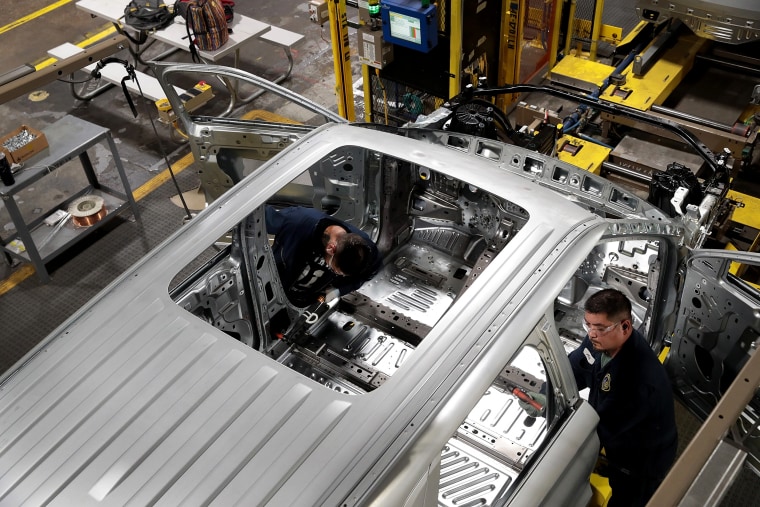The economy added 128,000 jobs in October, beating expectations of 75,000 new positions added last month. The unexpected figure comes despite a 40-day strike at General Motors and increasing economic anxiety that continues to weigh on business investment amid President Donald Trump’s trade war.
The unemployment rate ticked back up to 3.6 percent, according to the monthly employment data released Friday by the Bureau of Labor Statistics. The agency also issued revisions for previous months, with a 51,000 increase for August and an additional 44,000 jobs for September, for a total of 95,000 more positions added.
The average job gain over the past three months now stands at 176,000, as compared to 223,000 in 2018.
"Even though these jobs numbers are a reliable source of comfort, the economy is not out of the woods," said Steve Rick, Chief Economist at CUNA Mutual Group. "The overall labor trend is still sneaking up on wage growth, and pressure surrounding trade and tariffs has been taking a toll on the markets and longer-term business outlooks."
Download the NBC News app for breaking news and politics
The historic walkout by the United Automobile Workers union likely removed around 70,000 jobs from the count last month, economists estimated, since striking workers who do not receive a paycheck are technically unemployed. That number includes the 46,000 striking members of the UAW, plus a number of positions at suppliers and other businesses impacted by the strike. That temporary blip should be reversed for this month's number.
Separately from the autoworkers, the manufacturing sector continues to drag on the economy, with Trump’s monthslong trade war with China weighing on — if not stalling — business decisions, hiring, and capital investment.
Weakening business investment and any ensuing cutbacks in hiring would have a ripple effect on consumer spending — which drives 75 percent of the economy.
“If this downbeat note reverberates in a meaningful way to households, spurring an upsurge in job insecurity, then the last pillar to fall in a recession — consumer spending — would be at risk of crumbling,” Bob Schwartz, a senior economist at Oxford Economics in New York, told Reuters.

